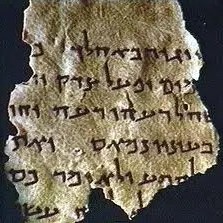 I once set up a booth at a fair offering free dream interpretation without referencing any religious belief. Those who were non-religious, new age, or spiritual without aligning to a religious system were delighted to receive my interpretive comments. But interestingly, it was the Christians who interrogated me as to the beliefs behind what I was doing, then attacking me when they discovered I was Christian.
I once set up a booth at a fair offering free dream interpretation without referencing any religious belief. Those who were non-religious, new age, or spiritual without aligning to a religious system were delighted to receive my interpretive comments. But interestingly, it was the Christians who interrogated me as to the beliefs behind what I was doing, then attacking me when they discovered I was Christian.
I know from experience that they do that because they’ve have been taught in church that God stopped speaking prophetically after the Apostles died and the Bible was closed.
These well-meaning believers ask questions like, “If prophetic gifts are still in operation, why did they disappear early on after the Bible was completed? Let me share my thoughts on that.
The truth is that since New Testament days, God has been faithful to provide mankind prophetically gifted ministers throughout the centuries just as He has provided pastors, teachers, and evangelists.
Original historical documents‒ although few in number‒ abound with supernatural events and prophetic stories from every period of church history.
But few of us, including seminary-trained pastors, even see these original records. Instead, we read summaries and revised versions. Deeper research sheds light on some well-respected and prominent church figures.
Charles Spurgeon (1834- 1892), a well-respected Baptist theologian from England, is often quoted today, but few are made aware of his prophetic ministry.
Spurgeon himself said, “I could tell as many as a dozen similar cases in which I pointed at somebody in the hall without having the slightest knowledge of the person, or any idea that what I said was right except that I was moved by the Holy Spirit to say it. And so striking has been my description, that the persons have gone away and said to their friends, “Come, see a man that told me all the things I ever did; beyond a doubt, he must have been sent of God to my soul, or else he could not have described me so exactly.” And not only so, but I have known many instances in which the thoughts of men have been revealed from the pulpit . . . and they have been heard to say going out,“ The preacher told us just what we said to one another when we went in at the door.”
Here are 10 early church figures on the topic of dreams…
1. Polycarp (69-155 AD) He dreamed he would be martyred in Rome (which he was), and an ancient document entitled “The Martyrdom of Polycarp” records that he said, ‘Because of visions, many have come to make their abode with Jesus.”
2. Justin Martyr (100-165 AD) This theologian and apologist believed in the positive spiritual effects of dreams.
3. Irenaeus (125-200ish AD) This Bishop of Gaul considered dreams as means of contact with God.
4. Tertullian of Carthage (160-225 AD) This quote reveals his reverence for dreams, “Almost the greater part of mankind derive their knowledge of God from dreams.” He put dreams into three categories: those demonically originated, those originating from the soul, and for the third category he wrote, “But all those visions that are honest, holy, prophetic, inspired, instructive, and inviting to virtue must be regarded as emanating from God. For He has promised indeed to pour out the grace of the Holy Spirit upon all flesh.”
5. Origen (185-254 AD) He wrote, “It is a matter of belief that in dreams, impressions have been brought before the minds of many. Some relate to divine things; others to future events of this life. This may be with clearness or in a symbolic manner.”
6. Dionysius of Alexandria (d. 265 AD.) He wrote, “I was strengthened by a vision that was sent me from God. And a word spoken to me expressly commanded me . . . “
7. St. Augustine (354-430 AD) One of the most influential figures in church history, he referenced dreams as an important way that God spoke to humanity.
8. Synesius of Cyrene (d.414 AD.) He wrote De Insomniis, a book on dreams that continues to be influential to the Greek Orthodox Church.
9. St. Jerome (340-420 AD.) This church leader translated the scripture from its original Hebrew and Greek into Latin; this Bible is known as the Vulgate and used by the Roman church. A dream was instrumental in St. Jerome’s conversion to Christianity.
10. St. Thomas Aquinas (1225-1274 AD.) This extremely influential theologian wrote 21 volumes of theology and afterward had a vision of heaven writing. “All that I have written now has little value.” He received visions and was of the opinion that dreams could have a spiritual origin having come from God, by angels, or of demonic origin. The argument that prophesy ended with the closing of the canon of scripture contains a few holes. More on this topic later.
 Remember: Each of us receives our own dreams, and each of us knows our own state of affairs. Dreamers are intended to make the best interpreters of their own dreams as they grow in understanding of the parabolic language of dreams.
Remember: Each of us receives our own dreams, and each of us knows our own state of affairs. Dreamers are intended to make the best interpreters of their own dreams as they grow in understanding of the parabolic language of dreams.
I’m not you, but that’s my view! Every Blessing!
Lynmarie
The comments on this post did not migrate to our new site. Comments welcome now!
Be sure to subscribe to “replies to your comments” or “all comments” to be notified of comments on this post by email. Form is below comments.